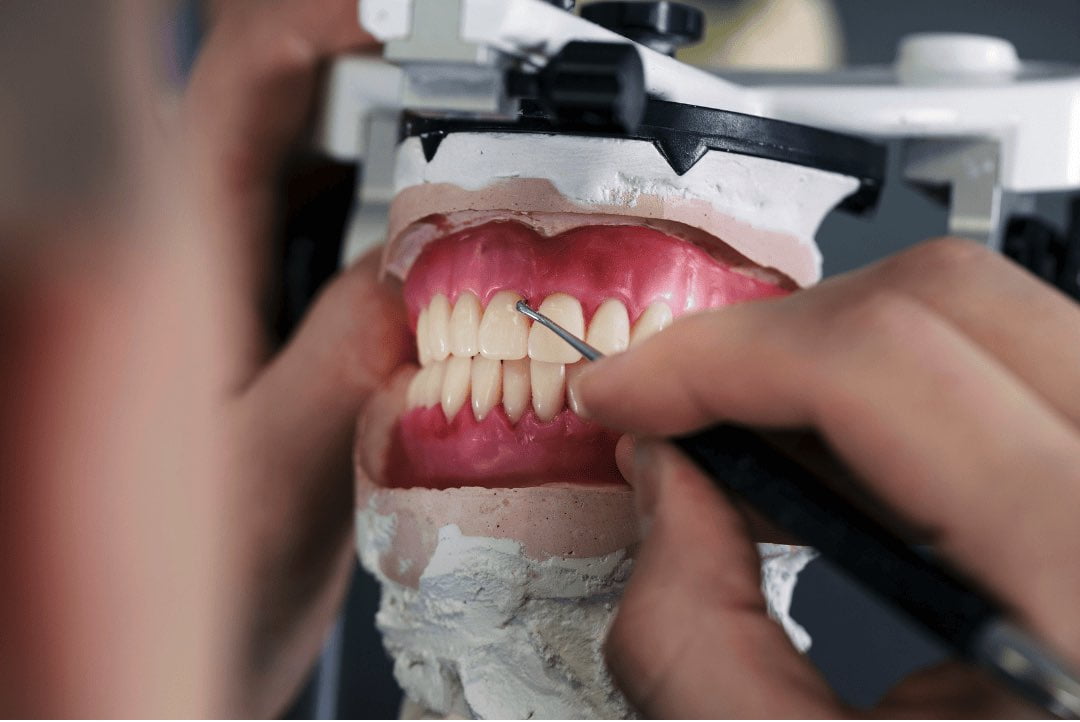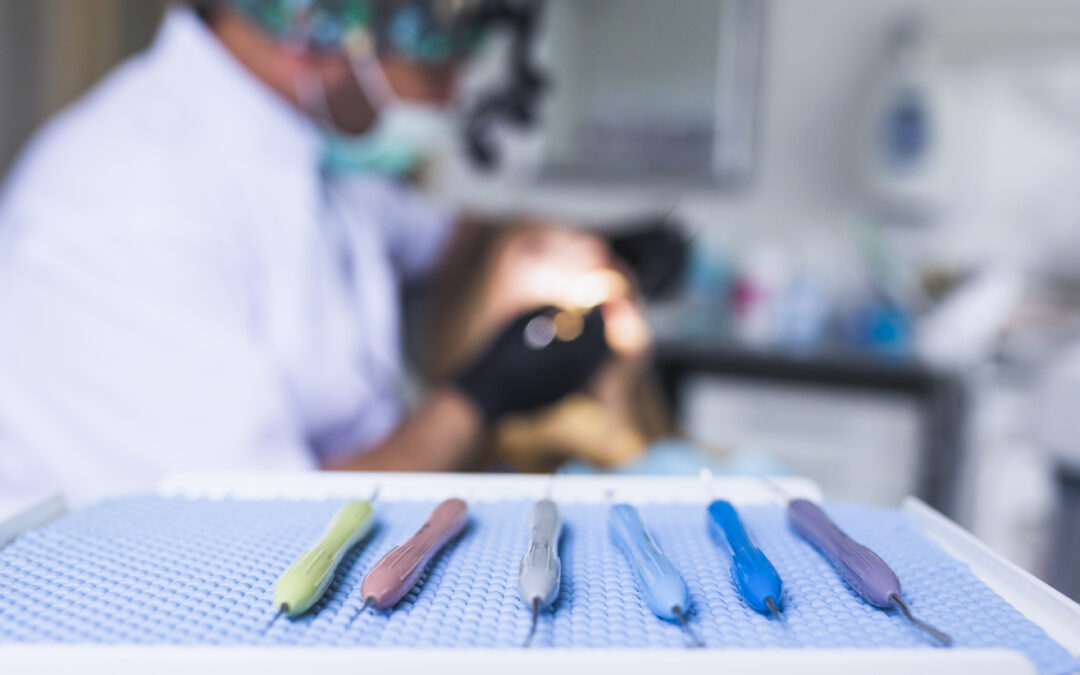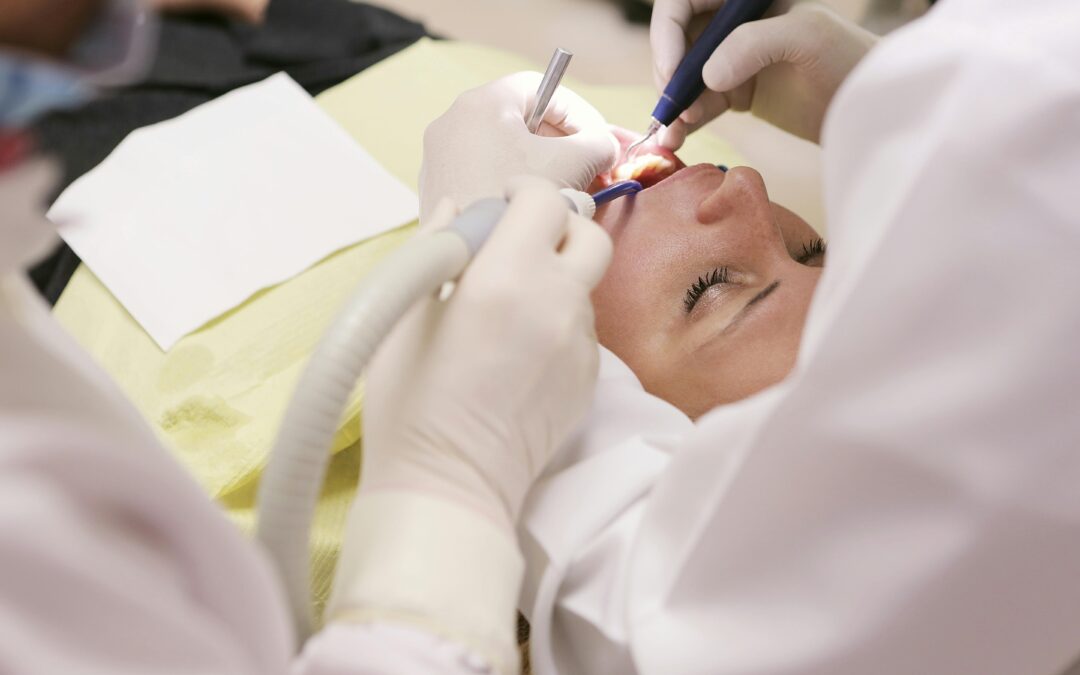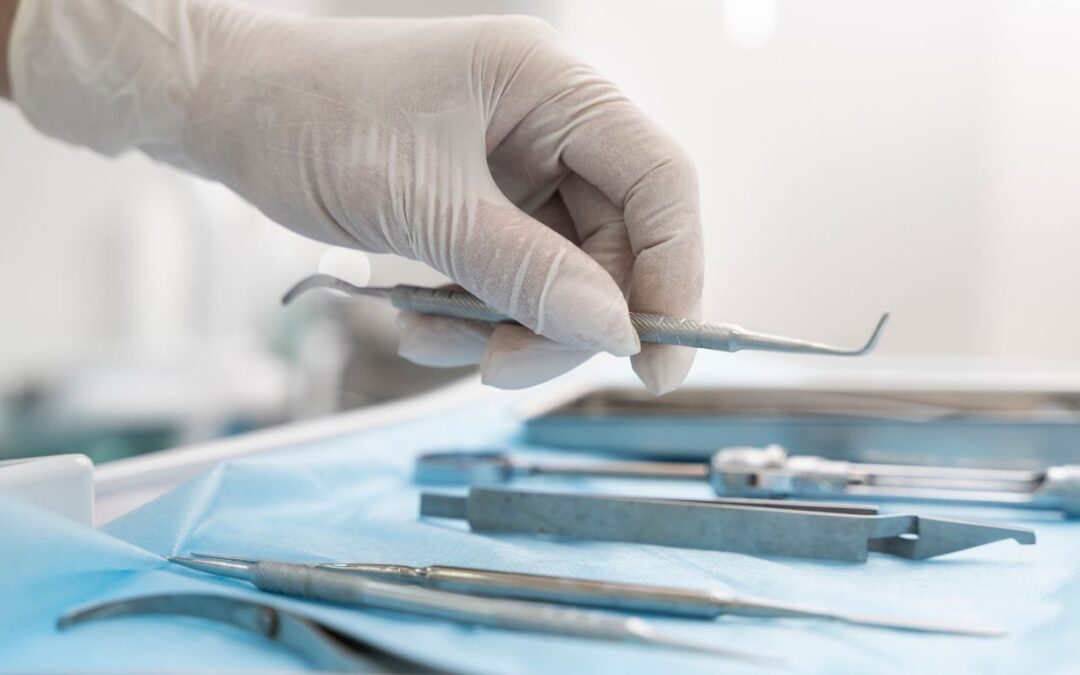Dental prosthesis in Tenerife
Dental prosthesis specialists in Tenerife

About SJD Dentists
What are dental prostheses?
Dental prostheses represent an advanced and personalised solution to replace missing or damaged teeth, improving both oral functionality and the aesthetics of your smile. At SJD Dentistas, we specialise in providing tailor-made dental prostheses in Tenerife, using quality materials such as acrylic, porcelain, and metals to ensure durable and satisfying results.
The process begins with a thorough evaluation to determine the most suitable option, ensuring that each prosthesis not only fits perfectly but also replicates the natural functionality and appearance of the teeth. Our team of experts guides each patient through the process, ensuring a safe, comfortable, and personalised experience.
If you are considering dental prostheses in Tenerife as a solution to restore your smile, we invite you to consult with us at our dental clinics, located in La Laguna and Las Chafiras. We are ready to transform your smile with solutions that lead in innovation and quality.
What types of dental prostheses are available on the market?
A dental prosthesis is classified according to its location in the mouth and whether it is a fixed or removable prosthesis. Removable prostheses can be partial or complete, and are used when the patient needs to replace some or all of the teeth in the dental arch. Removable prostheses are easy to remove and clean, making them a convenient option for many patients.
On the other hand, fixed prostheses are permanently placed in the mouth and cannot be removed without the help of a dental professional. Fixed prostheses can be placed over natural teeth or dental implants and are a popular option for those looking for a durable and resistant solution.
Prostheses on dental implants can be either fixed or removable, and are used when the patient needs to replace one or more missing teeth. Dental implants provide a solid foundation for the prosthesis, ensuring a secure and stable fit.
Removable dental prosthesis
Removable dental prostheses are those that the patient can remove for cleaning and oral hygiene. These prostheses can be partial or complete, depending on the number of teeth that need to be replaced. If you are interested in removable dental prostheses in Tenerife, feel free to contact us.
Partial removable prostheses are used when the patient still retains some of their natural teeth. There are three types of partial removable prostheses:
-
Resin prostheses: These are made entirely of resin and mainly rest on the gums.
-
Skeletal dental prostheses: These have a metal alloy structure combined with resin, which is fixed to the gums and adjacent teeth using metal hooks that transfer greater pressure to the supporting teeth.
-
Valplast or Flexite prostheses: These are made of biocompatible nylon, providing an ideal level of flexibility and stability.
On the other hand, complete removable prostheses are used when the patient has no or cannot retain any teeth, and the prosthesis replaces all the teeth in the dental arch. These prostheses cover the upper palate for better retention and occupy the entire bone ridge.
It is important for a qualified dentist to assess the most suitable type of dental prosthesis for the patient based on their needs and the condition of their mouth. Additionally, it is essential to follow the dentist’s recommendations on the use and care of the prosthesis to ensure its durability and maintain good oral health.

Fixed prostheses on teeth
Fixed dental prostheses are a treatment option in which the patient cannot remove them, and only the dentist is trained to place and clean them. These prostheses are anchored to the teeth adjacent to the missing tooth, and for this, the teeth must be shaped to make room for the crown that will be placed on them.
Although this shaping may be considered a disadvantage, it ensures that the prosthesis is securely fixed and durable, providing a long-lasting and effective solution for tooth loss. Additionally, various materials are used to create fixed dental prostheses, such as porcelain or zirconium, which ensure good aesthetics and dental functionality. It is important for a qualified dentist to assess the condition of the patient’s teeth and mouth to determine if opting for a fixed dental prosthesis in Tenerife is the best option for their specific case.
CLIENT REVIEWS SJD DENTISTS


Frequently Asked Questions
Frequently Asked Questions About Dental Prosthetics
In this section, we will address the most important frequently asked questions that most clients have about dental prosthetics.
Can I sleep with my dental prosthesis on?
It is not recommended to sleep with your dental prosthesis on, as this can cause several issues.
Firstly, it can increase pressure on the soft tissues of the mouth, leading to pain or irritation. Secondly, it can result in a build-up of bacteria on the prosthesis and in the mouth, potentially causing infections.
Additionally, sleeping with the prosthesis may cause it to loosen or shift, which can be both uncomfortable and painful. It also increases the risk of damage to the prosthesis itself.
For these reasons, it is advisable to remove your dental prosthesis before sleeping and store it in a safe, clean place. This allows the soft tissues in your mouth to recover and helps to maintain the prosthesis in good condition for longer. Be sure to follow your dentist's care instructions to ensure the durability and proper functioning of your dental prosthesis.
How do I know if I need a dental prosthesis?
The need for a dental prosthesis depends on each patient's individual situation. Some signs that you may require a dental prosthesis include:
- Loss of one or more teeth due to injury, periodontal disease, or advanced decay.
- Difficulty chewing or speaking as a result of missing teeth.
- Pain or discomfort in the jaw, head, or neck.
- Broken or worn-down teeth affecting your bite.
- Changes in facial appearance due to tooth loss.
- Difficulty maintaining good oral hygiene because of the location of your teeth.
If you experience any of these symptoms, it is important to consult a dentist for an evaluation and guidance on whether a dental prosthesis is needed. The dentist will perform a clinical and radiographic examination and recommend the type of prosthesis that best suits your needs and budget.
Is the process of getting a dental prosthesis painful?
The process of getting a dental prosthesis should not be painful if done correctly and with the necessary pain management measures in place. The procedure for placing dental prostheses is a common and routine procedure performed in dental offices worldwide.
After the procedure, the patient may experience some discomfort or mild pain in the mouth for a few days as the soft tissues adjust to the new prosthesis. The dentist may prescribe pain relievers to help manage the discomfort.
In general, the process of placing a dental prosthesis should not be painful. However, if the patient has any concerns or questions, it is recommended to speak with the dentist beforehand to clarify them and provide reassurance.
Can I use toothpaste and mouthwash with a dental prosthesis?
Yes, you can use toothpaste and mouthwash with a dental prosthesis, but it's important to choose the right products to avoid damaging the prosthesis and maintain good oral hygiene.
It is recommended to use gentle, non-abrasive dental products that do not contain hard particles that could scratch or damage the surface of the dental prosthesis. Toothpastes and mouthwashes containing alcohol or peroxide may dry out the prosthesis and affect its durability.
It’s important to remember that dental prostheses require proper daily oral hygiene to prevent plaque build-up and the formation of bacteria that can cause infections and bad breath. It’s recommended to remove the dental prosthesis before brushing your teeth and use a soft-bristled brush to clean the prosthesis and the surrounding area of the mouth.
Following the dentist's instructions on how to properly care for and clean your dental prosthesis is essential to prolong its lifespan and maintain good oral health. If you have any questions about which products to use or how to care for your dental prosthesis, don’t hesitate to consult your dentist.
Which is better: dental prosthesis or implants?
The choice between a dental prosthesis or dental implants depends on each patient's individual needs and circumstances. Both treatments can be effective for restoring dental function and aesthetics.
Dental prostheses are a more affordable and less invasive option compared to dental implants, and they are used to replace one or more missing teeth. Prostheses can be removable or fixed and can be made from a variety of materials, including resin, porcelain, and metal. The process of placing a dental prosthesis is less complicated and faster than that of implants.
On the other hand, dental implants are a more permanent and durable option for replacing missing teeth. They consist of a small titanium structure inserted into the jawbone, acting as an artificial root for the tooth. Dental implants can support a fixed dental crown, a fixed dental prosthesis, or a removable dental prosthesis. Dental implants are more expensive than dental prostheses, but they are also more durable and can last a lifetime.
In general, the choice between dental prostheses and dental implants will depend on several factors, including the patient's oral health, the number of missing teeth, and personal preferences. It is important to consult with a dentist to determine which is the best option for your specific case.
How much does a dental prosthesis cost?
The cost of a dental prosthesis varies depending on the type of prosthesis needed, the number of teeth to be replaced, the material used, and the dentist or dental technician performing the procedure.
In general, removable dental prostheses tend to be less expensive than fixed prostheses. Partial removable prostheses are usually cheaper than full prostheses, as they require less material and work.
On average, a partial removable dental prosthesis can cost between 500 and 1,500 euros, while a full removable prosthesis can range from 1,000 to 3,000 euros.
On the other hand, a fixed dental prosthesis is typically more expensive due to its higher complexity and the materials used. The cost of a fixed prosthesis on teeth or implants can range from 1,500 to 3,000 euros per tooth.
What is the difference between fixed and removable dental prostheses?
The main difference between fixed and removable dental prostheses is that fixed prostheses are permanent and cannot be removed by the patient, while removable prostheses can be taken out by the patient for daily cleaning and maintenance.
Fixed prostheses are placed using a technique that involves shaping the adjacent teeth to allow the placement of the prosthesis, which is secured with dental cement. This ensures that the prosthesis remains fixed and stable in the mouth, providing a durable solution for tooth loss. Fixed prostheses can be placed over natural teeth or dental implants.
On the other hand, removable prostheses are held in place by hooks or clips that attach to the remaining teeth in the mouth. These prostheses can be partial or complete, and are easily removed for daily cleaning and care.
Additionally, removable prostheses can be more cost-effective than fixed ones and usually require less dental intervention, as there is no need to reshape the adjacent teeth for placement.
How long do dental prostheses last?
The lifespan of dental prostheses can vary depending on the type of prosthesis, the quality of the materials used, and the care taken with them. In general, dental prostheses are estimated to last between 5 and 10 years, although they can last much longer if maintained properly.
Fixed dental prostheses typically have a longer lifespan than removable ones, as they are not exposed to as much wear or daily handling. However, fixed prostheses may need to be replaced if they loosen or fracture.
In the case of removable prostheses, it is important to note that the materials used may wear down over time, which can affect their fit and stability in the mouth. Additionally, removable prostheses can be damaged if handled improperly, potentially shortening their lifespan.
It is important to highlight that the care and maintenance of dental prostheses are crucial to ensure their durability. It is recommended to follow a daily oral hygiene routine, clean the prostheses regularly, and attend regular check-ups with the dentist to detect and address any issues promptly. With proper care, dental prostheses can last many years and provide an effective solution for tooth loss.
Can I eat normally with a dental prosthesis?
Yes, it is possible to eat normally with a dental prosthesis, whether fixed or removable. However, during the first few days after the prosthesis is placed, you may experience some discomfort and may need to avoid certain hard or sticky foods until you get used to the prosthesis.
It is important to note that, although dental prostheses are designed to be durable and resistant, they can be damaged if exposed to excessive forces or very hard or sticky foods. Therefore, it is recommended to chew food carefully and avoid very hard or sticky foods that could damage the prosthesis.
Additionally, it is important to maintain good oral hygiene to prevent infections and ensure the prosthesis remains in good condition. This includes brushing your teeth and prosthesis after every meal and using dental floss regularly to clean the spaces between the teeth and the prosthesis.
In general, with proper care and a balanced diet, people with dental prostheses can eat normally and enjoy a good quality of life.
How should I care for my dental prosthesis?
Proper care of dental prostheses is essential to ensure their durability and proper function. Here are some recommendations for caring for a dental prosthesis:
-
Maintain good oral hygiene: Just like natural teeth, dental prostheses require daily cleaning to prevent plaque buildup and infections. It is recommended to brush the dental prosthesis after each meal with a soft toothbrush and use a specific cleaner for dental prostheses.
-
Avoid hard or sticky foods: Although dental prostheses are designed to be durable, it is advisable to avoid very hard or sticky foods that could damage the prosthesis or cause it to loosen.
-
Handle the prosthesis with care: Dental prostheses can be fragile and need careful handling. It is recommended to hold the prosthesis with both hands and avoid bending or manipulating it with force.
-
Have regular check-ups with the dentist: It is important to attend regular check-ups with the dentist to detect any issues with the dental prosthesis and make necessary adjustments.
-
Store the prosthesis in a safe place: When not in use, it is recommended to store the prosthesis in a safe and protected place, away from children or pets.
By following these recommendations, it is possible to properly care for a dental prosthesis and ensure its proper functioning for many years.
Payment methods
We offer payment facilities
We provide various payment options so you can undergo the dental treatments you need whenever necessary.
Trust us
Personalized services
Hundreds of satisfied clients back a team of highly qualified dentists who guarantee the best results.
Special Promotion
Come with a companion on your first visit
Ask about our loyalty rate. Both you and your companion can benefit from this promotion.
Dentists Tenerife: trust, professionalism and proximity
At SJD Dentists we firmly believe that choosing between different dentists Tenerife should not be a matter of chance, but an informed and conscious decision. I want to tell you personally how we work and why every day more and more people trust us to take care of their oral health. Since we started, our […]
Dentist in Tenerife: Confidence, technology and personalised care for your oral health
Why choose a dentist in Tenerife to take care of your oral health? When it comes to health, trusting a professional who is close, prepared and committed is key. If you are looking for a dentist in Tenerife that combines experience, personalised attention and the latest technology in dental treatments, you are in the right […]
Send us your inquiry
You can contact us at any office hours, or reach us during extended hours at the direct phone numbers.
- Calle San Juan, 52,38202 La Laguna
- Avenida Modesto Hernández González, 3,38629
Las Chafiras, San Miguel de Abona
Leave us your message
















